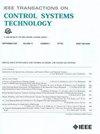基于动态遗忘高斯过程的学习模型预测控制在自主水下航行器中的应用
IF 3.9
2区 计算机科学
Q1 AUTOMATION & CONTROL SYSTEMS
引用次数: 0
摘要
由于各种因素的复杂和同步相互作用,自主水下航行器(auv)面临着一些挑战,包括但不限于未建模的动力学、高度非线性行为、相互耦合、通信延迟和环境干扰。特别是,环境干扰会降低基于模型的控制器的轨迹跟踪性能,例如模型预测控制(MPC)算法。数据驱动的方法,如高斯过程(GP)在实时学习干扰方面是有效的;然而,底层的离线超参数调优过程限制了它们的整体有效性。为了克服这一限制,我们提出了一种新的动态遗忘GP (DF-GP)方法来补偿操作干扰,从而避免了对超参数返回的需要。从本质上讲,所提出的方法将单个gps设计的预测与手工制作的遗忘因子最优地结合起来,提供了不同时间尺度的精确干扰估计。更重要的是,预测的干扰更新了MPC中的模型参数,促进了基于学习的控制框架,确保了在不同水下场景下的准确跟踪性能。严格的仿真和实际实验证明了该框架的效率和有效性。结果表明,干扰估计和跟踪性能提高了25%,表明所提出的框架优于其直接竞争对手。本文章由计算机程序翻译,如有差异,请以英文原文为准。
Empowering Autonomous Underwater Vehicles Using Learning-Based Model Predictive Control With Dynamic Forgetting Gaussian Processes
Autonomous underwater vehicles (AUVs) present several challenges due to the complex and simultaneous interplay of various factors, including but not limited to unmodeled dynamics, highly nonlinear behavior, intercouplings, communication delays, and environmental disturbances. In particular, environmental disturbances degrade trajectory tracking performance for model-based controllers, e.g., model predictive control (MPC) algorithms. Data-driven methods such as the Gaussian process (GP) are effective at learning disturbances in real time; however, the underlying offline hyperparameter tuning process limits their overall effectiveness. To overcome this limitation, we propose a novel dynamic forgetting GP (DF-GP) methodology that compensates for operational disturbances, thus circumventing the need for hyperparameter retuning. In essence, the proposed method optimally combines the predictions of individual GPs—designed with handcrafted forgetting factors, rendering precise disturbance estimation of varying timescales. What is more, the predicted disturbances update the model parameters in MPC, facilitating a learning-based control framework that ensures accurate tracking performance in different underwater scenarios. Rigorous simulation and real-world experiments demonstrate the efficiency and efficacy of the proposed framework. The results show a 25% improvement in disturbance estimation and tracking performance, demonstrating that the proposed framework outperforms its direct competitors.
求助全文
通过发布文献求助,成功后即可免费获取论文全文。
去求助
来源期刊

IEEE Transactions on Control Systems Technology
工程技术-工程:电子与电气
CiteScore
10.70
自引率
2.10%
发文量
218
审稿时长
6.7 months
期刊介绍:
The IEEE Transactions on Control Systems Technology publishes high quality technical papers on technological advances in control engineering. The word technology is from the Greek technologia. The modern meaning is a scientific method to achieve a practical purpose. Control Systems Technology includes all aspects of control engineering needed to implement practical control systems, from analysis and design, through simulation and hardware. A primary purpose of the IEEE Transactions on Control Systems Technology is to have an archival publication which will bridge the gap between theory and practice. Papers are published in the IEEE Transactions on Control System Technology which disclose significant new knowledge, exploratory developments, or practical applications in all aspects of technology needed to implement control systems, from analysis and design through simulation, and hardware.
 求助内容:
求助内容: 应助结果提醒方式:
应助结果提醒方式:


